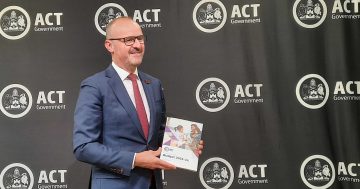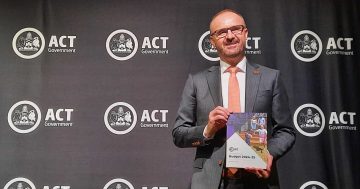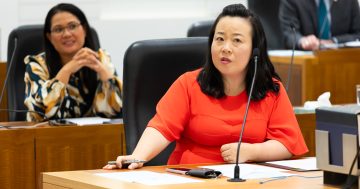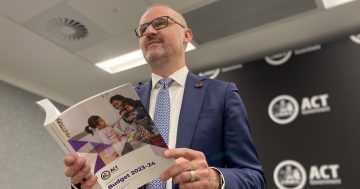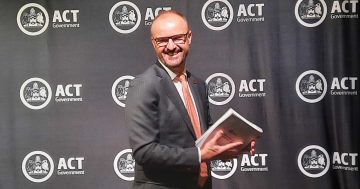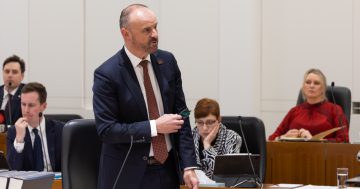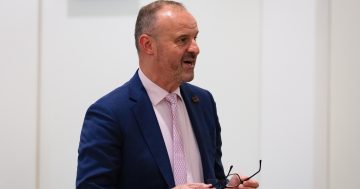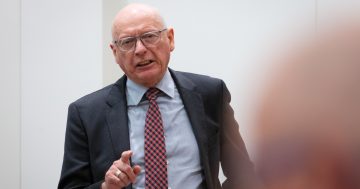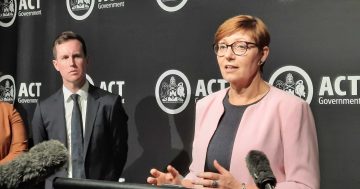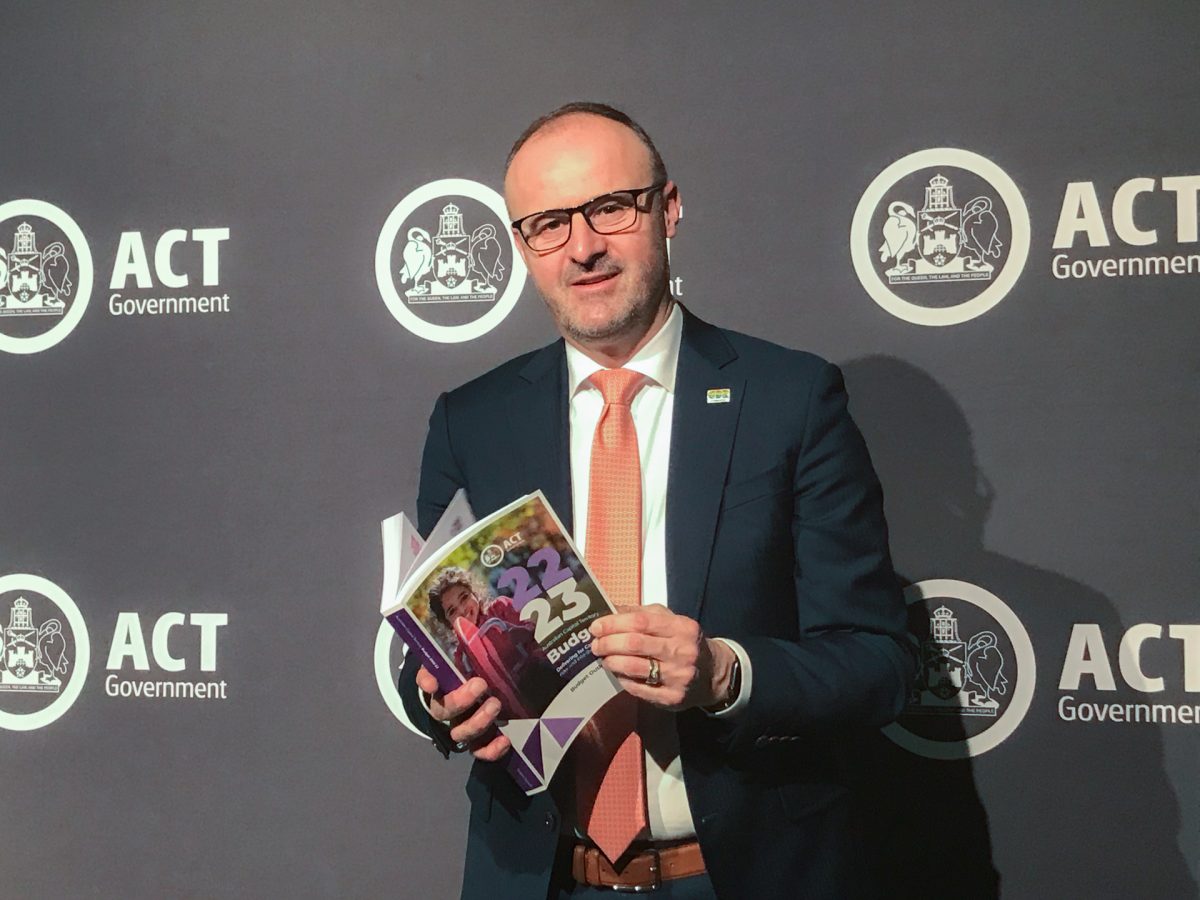
Andrew Barr on Budget day. Photo: Lottie Twyford.
Even the harshest critics of Andrew Barr would surely concede that being treasurer for the past two years has been no stroll through Telopea Park.
Trying to keep Canberrans safe and struggling businesses afloat during a pandemic was always going to cost way more money than the ACT had. But what choice was there?
This week Barr emerged blinking into the sunlight to deliver a set of numbers that, while not what Paul Keating might describe as “beautiful”, indicate the ACT might not experience the level of post-pandemic pain many feared.
History will judge whether Barr’s response to the pandemic and the level and type of support given to business was the right approach. Like Governments around the globe, the ACT really was whistling in the dark, throwing money it didn’t have at a crisis it couldn’t predict.
If Barr had his time again, I’m sure there are things he would do differently.
“No one is contesting that we shouldn’t have spent the money, but they’re complaining that there’s debt,” he said in exasperation on Wednesday morning.
But on Tuesday, delivering his first post-pandemic budget, he had the air of a man who knew he may well have dodged a bullet.
Sure, the forecast deficits will make your eyes water. And they will hit hard in the pocket for many years to come. Andrew Barr has put a circle around 2030, the year when, if everything goes to plan (and given the past couple of years, who would dare to even make a plan?), the ACT will have fully funded its superannuation liabilities.
This will be a moment for champagne swilling.
Currently, around $400 million a year goes towards funding the super shortfall, and that figure will grow to about $550 by the end of this decade. When that ends, significant inroads into budget deficits should be made.
The ACT is also banking on continued population growth. For a decade now, the ACT has been the fastest growing jurisdiction in Australia, which has resulted in GST growth which has dulled some of the pandemic financial pain.
The treasurer was asked this week why people would keep coming to the ACT given how hard it is to find houses to rent or buy. It is a huge problem and an area where Barr and his government will need to get very serious. It’s hard to see how this week’s budget will change anything in this area in the short term.
Barr himself acknowledges the best path to short-term relief is being provided by the Reserve Bank, which jacked up interest rates again as the ACT budget was being delivered. The ACT is pinning hope that the rises will continue to take the sting out of the local housing market.
He is also confident inflation won’t hurt Canberrans as much as other Australians. Electricity and water prices are falling in the ACT while growing by about 20 per cent in some other jurisdictions.
In a feisty post-budget radio interview, he was asked why he had found it so hard to deliver budget surpluses during his time as ACT Treasurer.
“To be fair, I have faced a global financial crisis, the election of the Abbott Government and the horror 2014 budget, the Mr Fluffy billion dollar loan we had to take out, and then a pandemic,” an incredulous Barr responded.
“What I am responsible for is the return to surplus that I’ve already done once in the middle of those shocks, and that we intend to do again after this one.”
How will we get there?
Currently, we have twice as many job vacancies as we have unemployed people in the ACT, and Barr has expressed confidence a lot of these jobs will be filled by new migrants and people moving from interstate.
“We’re the wealthiest city in Australia. More than half our population enjoy massively above Australian income. Those people will come to the ACT for those jobs and comfortably afford our market,” Barr predicted.
And then we just need to find them somewhere to live. And send their kids to school.
Who wants to be a treasurer?
Ross Solly is a broadcaster, journalist and political observer.












